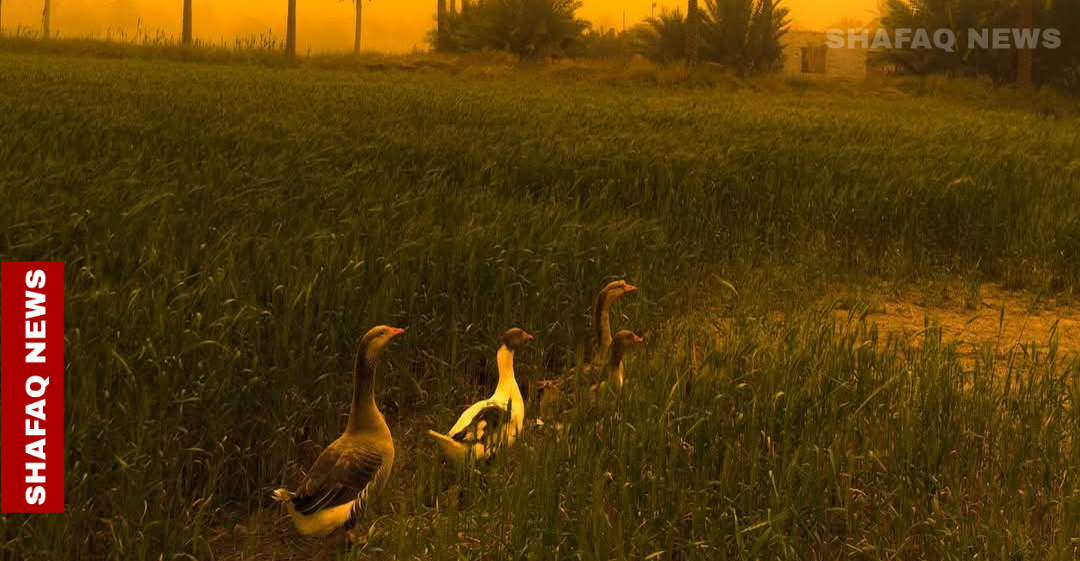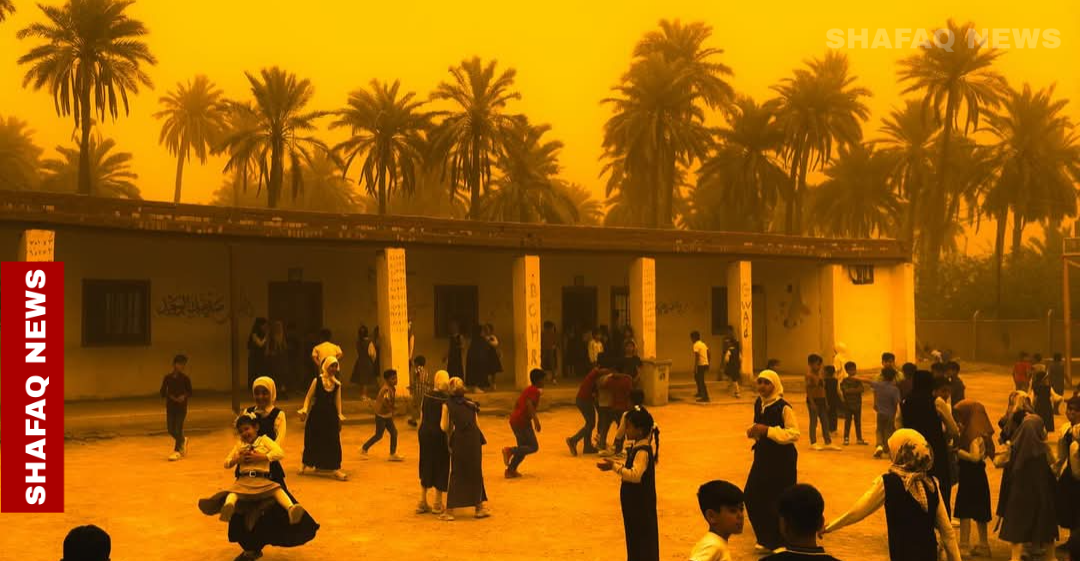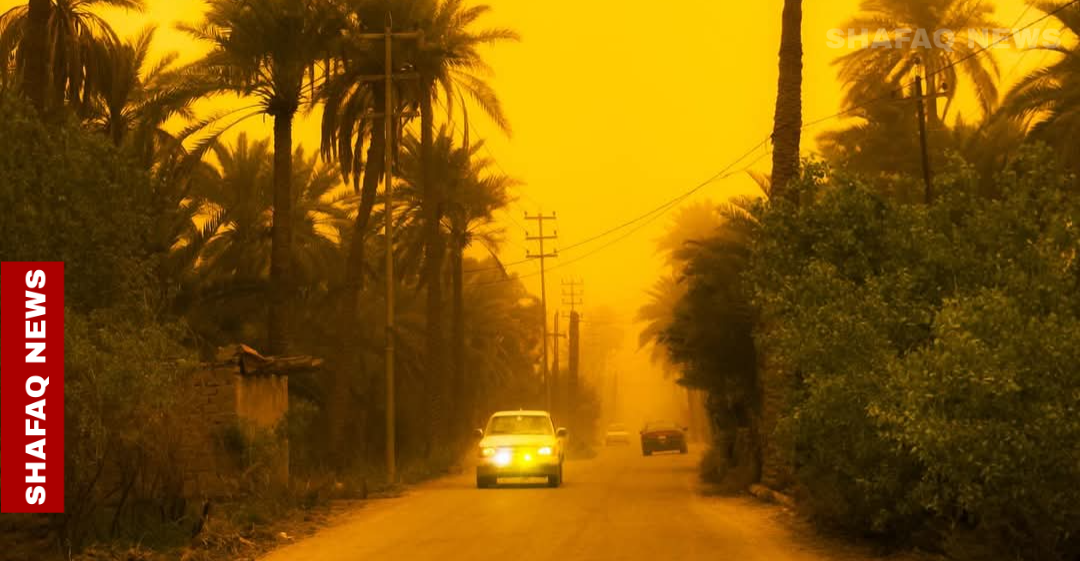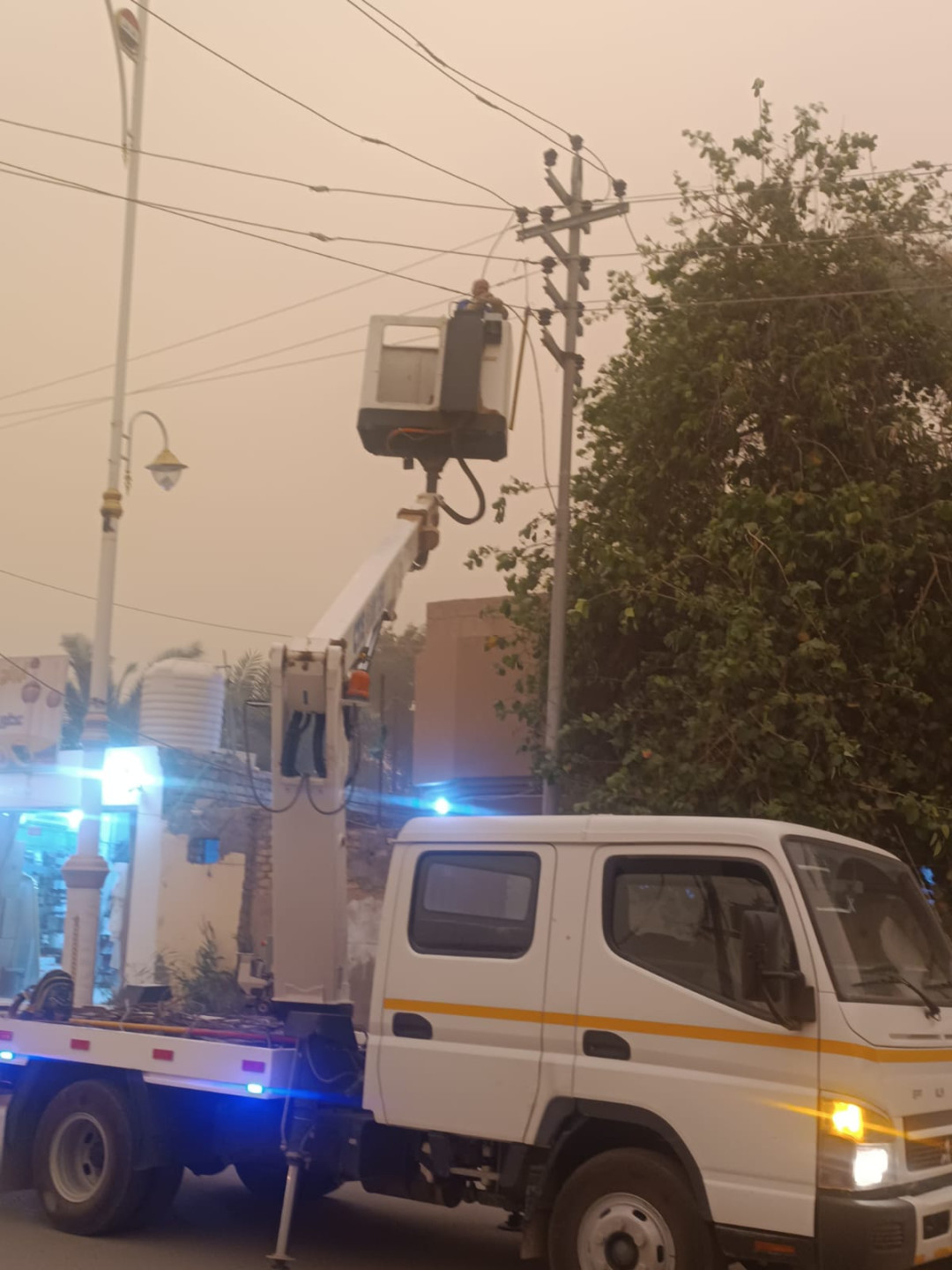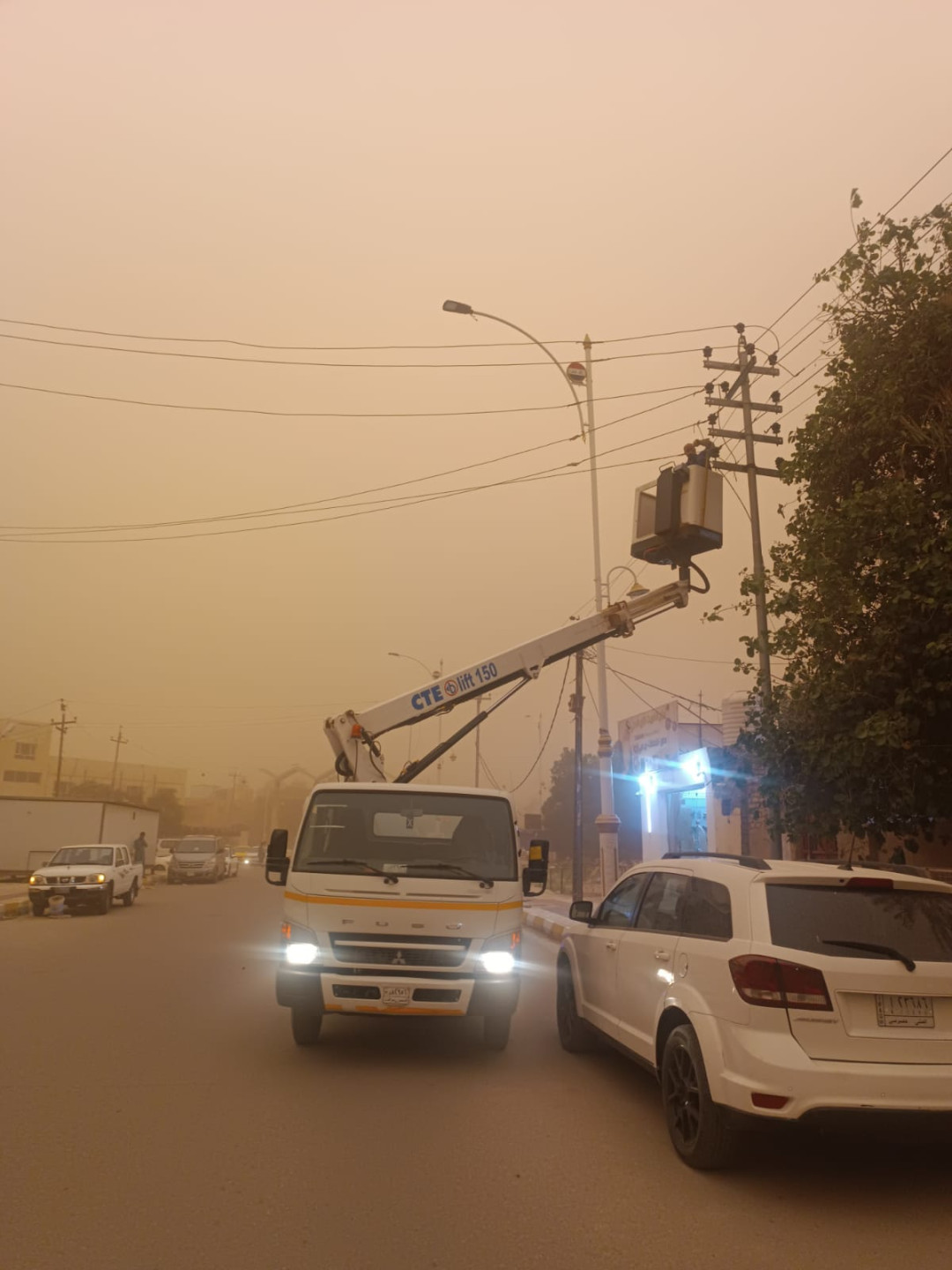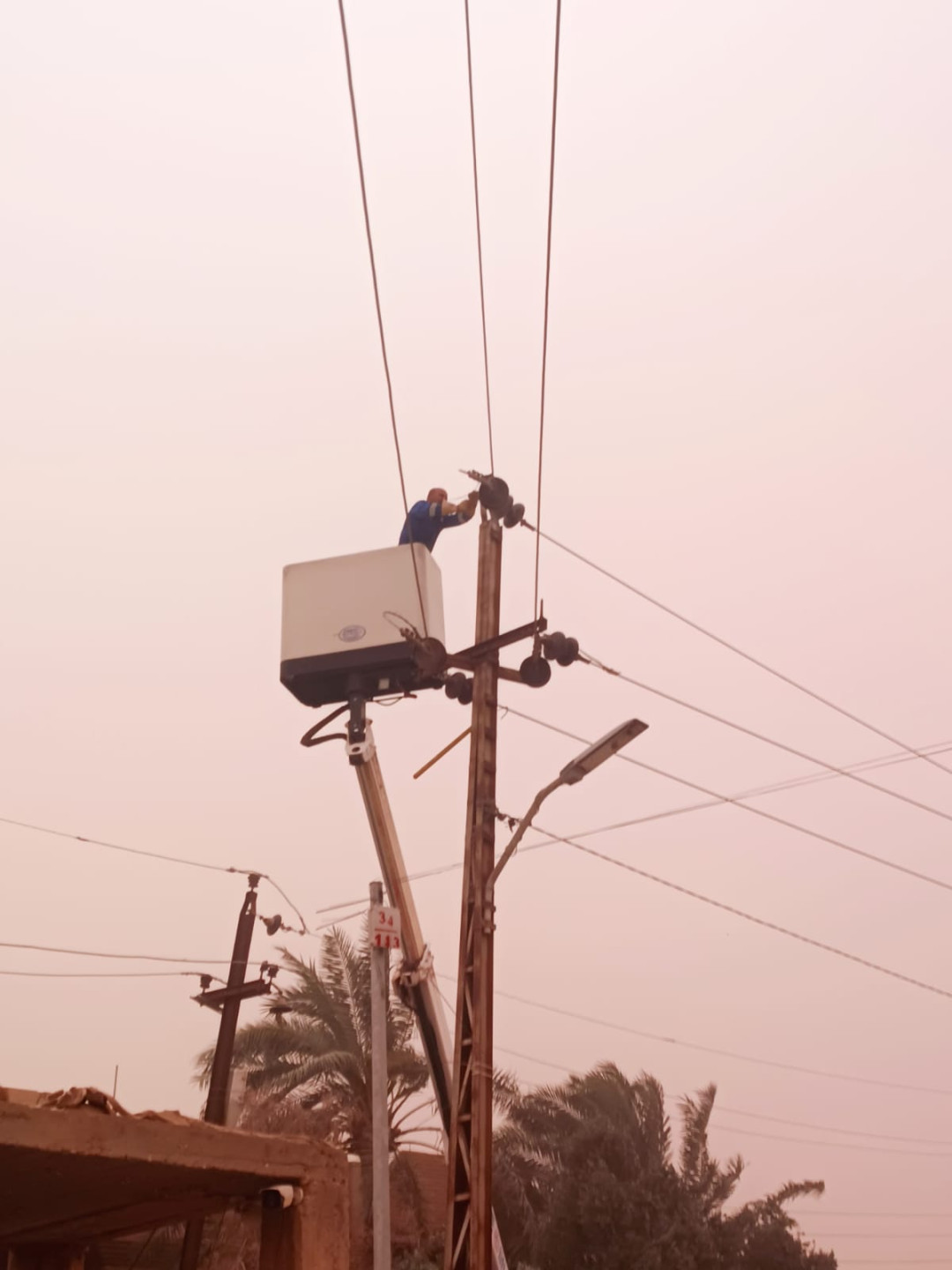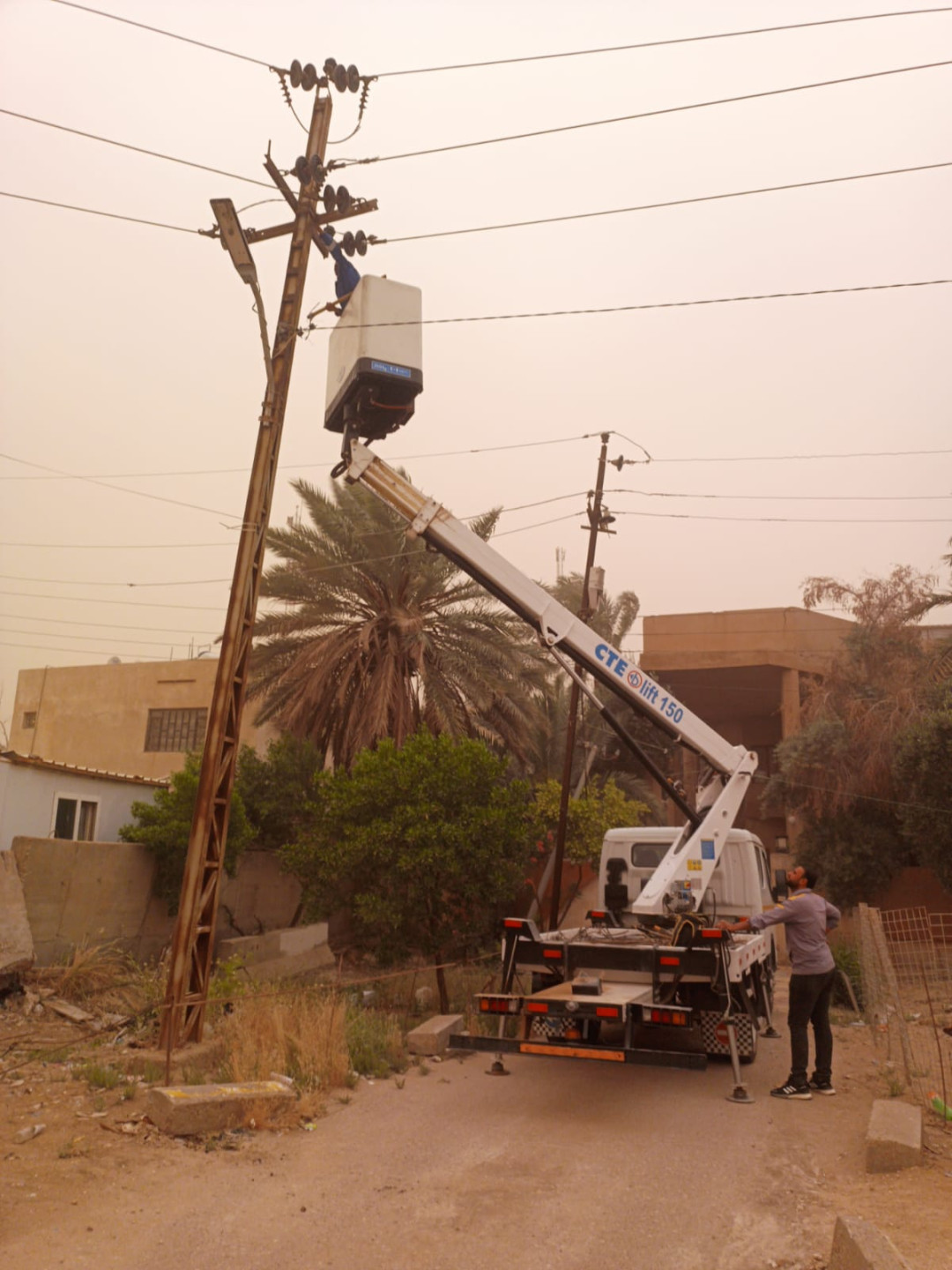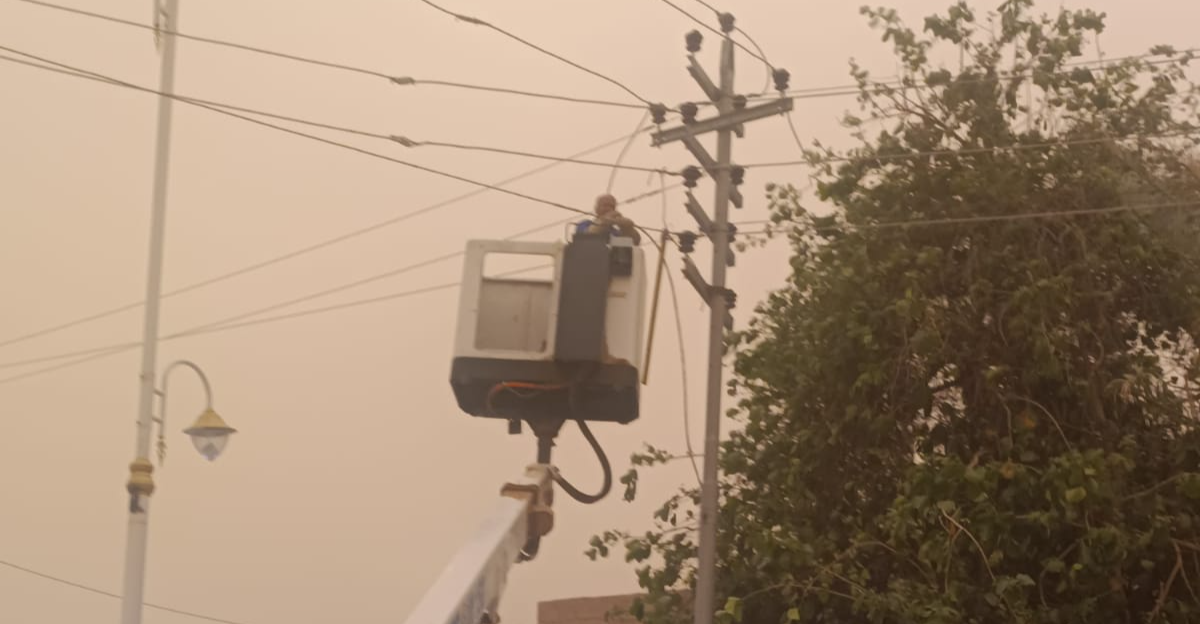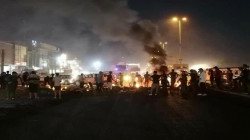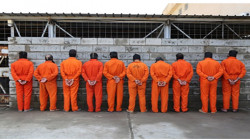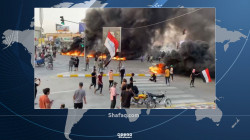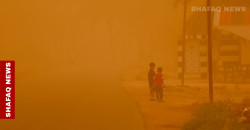Iraq hit by severe dust storm: flights halted, health crisis
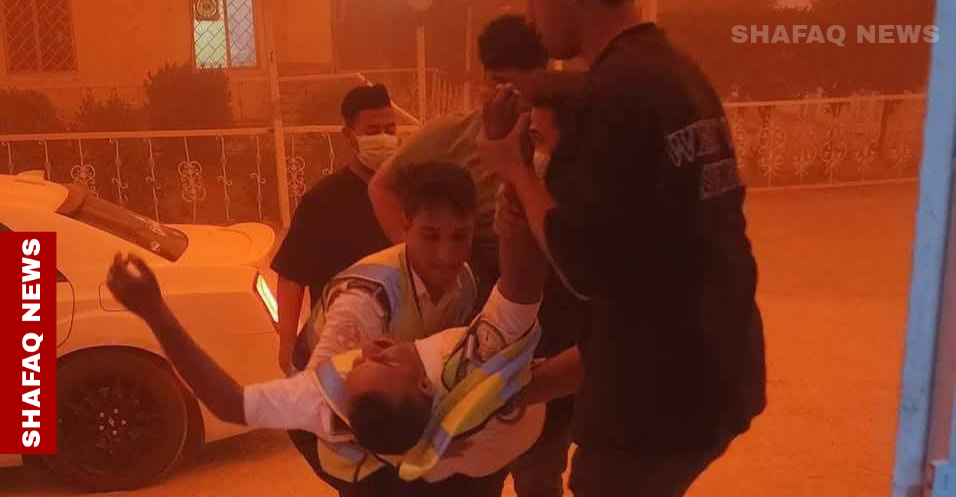
Shafaq News/ On Monday, a severe dust storm hit parts of Iraq, causing significant disruptions, including temporary flight halts, power outages, and health emergencies.
The storm, accompanied by strong winds and thick dust, turned the sky a deep orange, drastically reducing visibility and making travel hazardous. Satellite imagery from the General Authority for Meteorology and Seismic Monitoring confirmed that westerly winds created the massive dust cloud, reducing visibility to less than one kilometre in some areas. The storm is expected to
spread throughout central and southern Iraq as the day progresses.
State of Emergency
In response to the storm's impact, the governors of Dhi Qar and Najaf took several steps to manage the health crisis.
Dhi Qar Governor Murtadha Al-Ibrahimi declared a state of emergency on Monday evening, mobilizing all health institutions, including private hospitals, to manage a surge in severe suffocation cases.
Similarly, in Najaf, Governor Yusuf Ghanawi ordered a full alert at healthcare facilities, ensuring that hospitals were stocked with essential medical supplies, especially oxygen, for respiratory patients and the elderly. Civil defense teams were also placed on standby in both provinces to handle any emergencies caused by the dust storm.
A preliminary report from the Health Directorate in Najaf showed a significant rise in suffocation cases, with hospitals reporting the following numbers: 40 at Al-Mishkhab General Hospital, 60 at Al-Manathira Hospital, 88 at Al-Hakeem Hospital, 50 at Al-Sadr Hospital, 17 at Al-Furat Hospital, and 30 at Najaf Educational (German) Hospital. Additionally, five traffic accidents were reported, attributed to the storm’s reduced visibility.
The dust storm has not only caused health emergencies but also disrupted daily life and cultural landmarks. Shafaq News captured dramatic footage of the storm approaching the shrine of Imam Ali in Najaf, a key religious and cultural site in Iraq.
Airport Closures
Basra International Airport was temporarily closed due to poor visibility, and flights from Saudi Arabia were diverted to the capital. This closure coincided with power outages in parts of Basra, affecting both residential and commercial areas.
Additionally, airports in Najaf and Kuwait were also shut down due to the storm. In Baghdad, while the airport remained operational, visibility decreased significantly, raising concerns that airspace could be closed entirely if conditions worsen.
Power Grid Disruption
The dust storm severely impacted Iraq’s electricity network, triggering widespread outages across several southern provinces.
In Dhi Qar, one of the hardest-hit areas, several power feeders were knocked offline as the storm intensified. Abdul-Majid Alaa Majid, director of the province’s Electricity Distribution Branch, ordered the immediate deployment of specialised crews and equipment from local maintenance centres. Technical teams were also dispatched to priority zones to begin restoring services, with ongoing efforts focused on stabilising the grid and preventing further disruptions.
Traffic Advisory
The General Directorate of Traffic issued a public warning urging drivers to exercise caution due to poor visibility in some areas, which has dropped to less than one kilometer. The dust wave is expected to extend through the evening, affecting central and southern Iraq. Authorities advised motorists to reduce speed, use hazard lights, maintain a safe distance from other vehicles, and stop completely if visibility became zero.
Health experts cautioned that the storm could pose risks, particularly for individuals with respiratory conditions. They recommended wearing face masks and avoiding outdoor activities during the storm's most intense periods.
